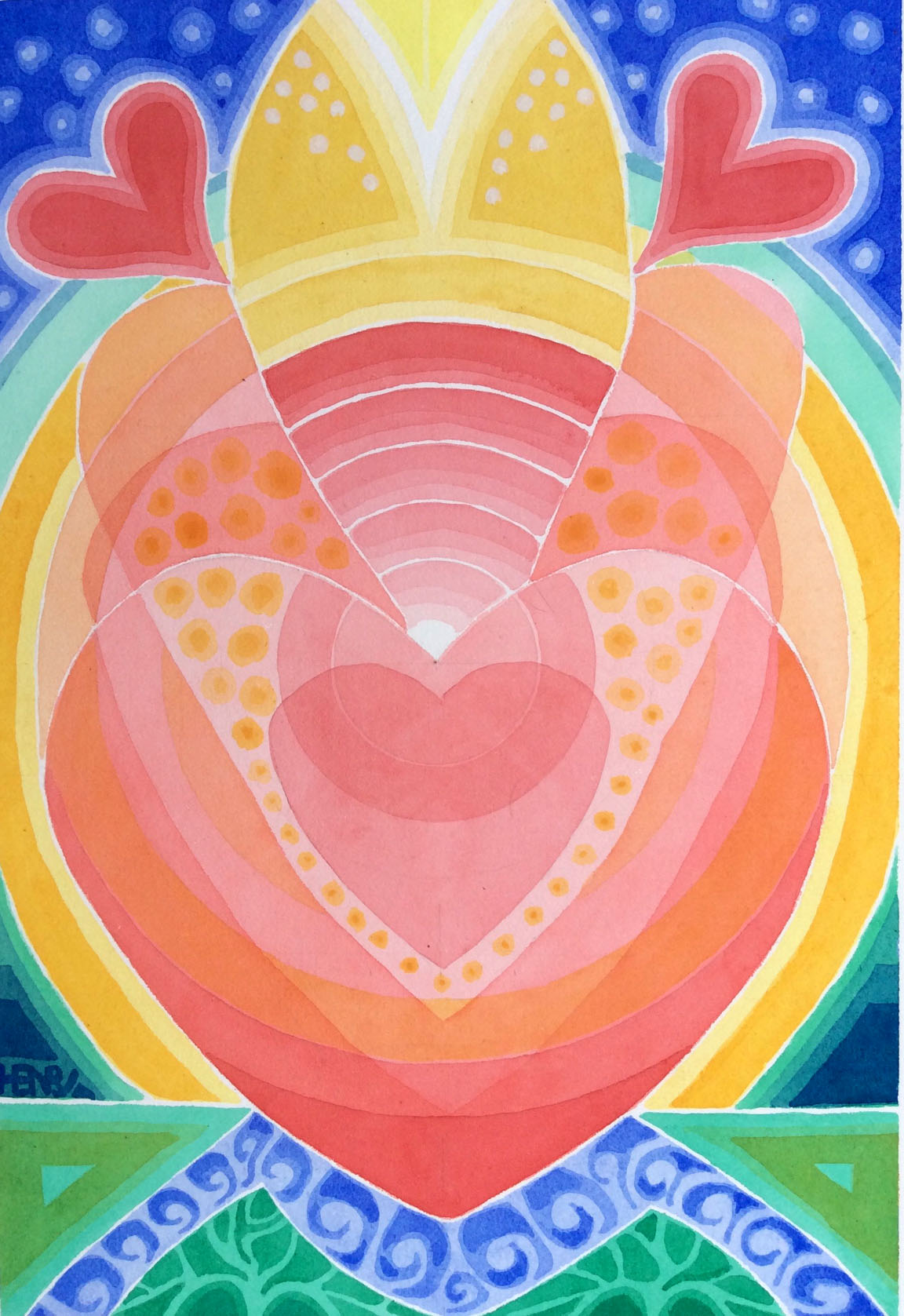

The Inspired Heart
An Intuitive Approach to Higher
Consciousness
| Information from text of essay | Additional information and web links |
| Try the Intuitive Heart process meditation. | Download from http://edgarcayce-intuitionschool.org/ih.mp3 http://intuitiveheart.com/ih.mp3 |
| Dreams have been an incredible and unequaled source of profound mysteries as well significant revelations—not to mention a wide variety of paranormal phenomena. |
Our Dreaming Mind, by Robert Van de Castle The Secret History of Dreaming, by Robert Moss |
| In my previous essay I described the “Dream Helper Circle.” | To read the original article, the second in a series of 10, |
| . It also automatically evokes and improves the core dream interpretation skill advocated by Cayce. | "... correlate those truths..." Scott Sparrow and Mark Thurston developed this idea into the "theme approach." |
| We begin that exploration in this essay by introducing a novel technique, yet an ancient approach to inducing intuition—heart awareness. | I've compiled many resources
on the subject of heart awareness--see
http://henryreed.net/heart-awareness/ The HeartMath Intitute has done a lot of laboratory research confirming the subjective impressions discussed here. Our approach is focused on learning self-validation of intuition. |
| The commonalities in the group’s dreams coincide to reveal information and guidance about the target person’s dilemma. At the same time, each individual dream reflects something analogous to that dilemma within individual dreamer. | Each dreamer responds to the question, "What am I learning about myself that may be helpful to the focus person and their concern?" A simple dream interpretation exercise provides the answer. |
| Making reference to the “heart” as a metaphor for the intuitive imagination is quite common. In my book, The Intuitive Heart, I give many examples of such linkage, as in “I know in my heart.” | A free e-copy of this book is available here. To purchase a hard copy at Amazon.com, click here! |
| “The purpose of the heart is to know yourself to be yourself and one with God.” (Edgar Cayce Reading 281-37) | To read more about Edgar Cayce's concept of heart awareness, click here! |
|
. This ability is
something normal, natural, and personal; in the right context, however,
it reveals something that today scholoars call “transpersonal.” |
To learn more about the meaning of the term "transpersonal" click here! |
| Begin your studies by empathizing with the feeling of the outbreath, the exhalation. It is a natural letting go. | |
|
For example, among
those reports contained in the “author’s notes” to this essay*, one
person reported, “As my heart blossomed out to embrace all in love, I
was surprised by a sudden shift between a wonderful ‘I am loving it
all,’ to an amazing experience of ‘It is all loving me!’ I was reminded
of Matthew 5:8—‘Blessed are the pure in heart for they shall know
God’—and I just broke out in tears!” |
To read a brief compilation of some of the reports from explorers of this journey in Inspired Heart Consciousness, click here! |
| Think about a child’s concerns about falling asleep: “Where do I go when I go to sleep? Do I disappear? When will I wake up? Will I still be me? Will you be here, Mommy?” By tucking in the child, the mother is physically communicating to the child, “you will be OK, I’ve got you covered!” Perhaps that woman was reassuring herself that it was she was safe as she released control of her breathing. | "As a child, I was terrified of death. It was often in the twilight hours, between the moment of lying down and the imperceptible instant of slipping off to sleep, that the terror would arise. The thought of vanishing completely from the world, of being engulfed in ineradicable darkness, would seize upon me and crush with it the very existence of the world. It was not simply that I would no longer be there. It was that reality itself would collapse, devoid of any point of apprehension. Petrified before a void so vast that it could not be contained within thought, let alone a thinking being, it was impossible to know how long it would take to drift off into the abyss that silently beckoned me." Why we never die, by Gabriel Rockhill, New York Times Opinion Page, August 29, 2016 |